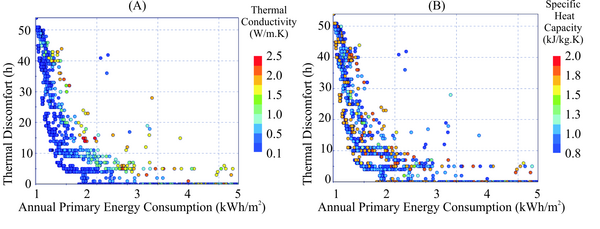Name of student: ir. C. (Babis) Kasinalis
Supervisors: prof.dr.ir. J.L.M. (Jan)Hensen, dr. D. (Daniel) Cóstola, ir. R.C.G.M. (Roel) Loonen
Chair research belongs to: Building Performance
Strategic area: Energy
Project year: 2013

Climate adaptive building shells (CABS) are receiving increasing attention because they can enable high-performance building design that combines low energy consumption with good indoor environmental quality (IEQ). Various studies have acknowledged the potential of CABS with seasonal adaptation, but thus far, there is no method available to quantify their performance potential. This project presents a framework for design and performance analysis of CABS with optimal seasonal adaptation strategies. The framework is based on a sequence of multi-objective optimization scenarios and uses a genetic algorithm in combination with coupled building energy and daylighting simulations.
Findings from a case study with an office building in the Netherlands demonstrate the effectiveness of the framework in quantifying the potential of seasonal CABS. Results of the case study show that monthly adaptation of six facade design parameters can lead to improved IEQ conditions and 15-18% energy savings compared to the best performing non-adaptive building shell. Through post-optimization analysis of monthly and annual solutions, a better understanding of the key elements of seasonal facade adaptation is obtained.